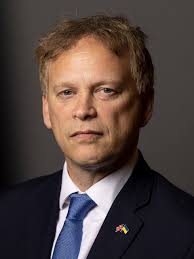The Rise of Grant Shapps as Secretary of State for Business and Trade

Introduction
Grant Shapps has become a prominent figure in the UK government following his appointment as Secretary of State for Business and Trade. This role is crucial not only for shaping the future of business in the UK but also for fostering international trade relations in a post-Brexit environment. His policies and strategies will significantly impact economic recovery and growth.
Background and Recent Developments
Grant Shapps was appointed to this role in September 2022, succeeding Kemi Badenoch. Prior to this, Shapps served in various ministerial positions, including as Secretary of State for Transport. His diverse experience in government has equipped him with insights into various sectors vital for the UK economy.
As Secretary of State for Business and Trade, Shapps has laid out a vision focused on enhancing the UK’s competitiveness in global markets. He has emphasised the importance of supporting small and medium-sized enterprises (SMEs), as they constitute a significant portion of the UK economy. Recently, Shapps announced a series of initiatives aimed at providing financial support and reducing bureaucratic hurdles for SMEs, which are critical during an economically challenging period.
Policy Initiatives and Objectives
The Shapps-led department has initiated several key policies aimed at bolstering trade relations with countries outside the European Union. His strategy includes negotiating trade agreements and Finding new export markets. One of his notable actions has been to lead trade missions to countries in Asia and the Americas, showcasing UK products and services while attracting foreign investment.
Moreover, Shapps has expressed a strong commitment to sustainability in business practices, advocating for green initiatives. He has been quoted saying, “The future of business must align with our commitment to tackling climate change,” indicating his desire to integrate environmental considerations into economic strategies.
Conclusion
As Grant Shapps continues in his role, the impact of his policies on the UK economy will be closely monitored. His approach, combining support for SMEs, fostering trade relationships, and a commitment to sustainability, may well define the UK’s economic landscape in the coming years. As the government navigates the complexities of a post-Brexit economy, Grant Shapps is positioned at the forefront of these pivotal changes, making his role increasingly significant for stakeholders across all sectors.









